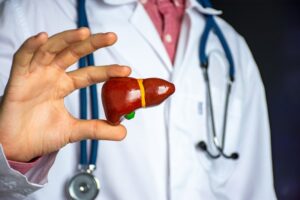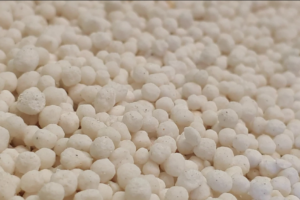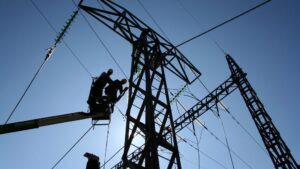
The Ukrainian company Monomakh has declared its openness, readiness to cooperate with law enforcement agencies and determination to protect its business reputation exclusively in the legal field to protect the business from economic damage caused by the distortion of information in the media about the company’s activities.
“We are determined to defend our reputation in court. The Ukrainian state should stand by those who create jobs, support the Armed Forces and act transparently,” the company’s website says.
The company emphasized that it does not cooperate with Russia and Belarus, does not have any official representative offices or affiliated companies, marketplace partners in these countries, and has not carried out any transactions after February 24, 2022.
“We are convinced that the court will make an appropriate assessment of the information attack in the media with signs of manipulation of public opinion,” the company said and called on journalists to adhere to professional standards, verify information, address inquiries directly to the company and not disseminate unconfirmed data.
Monomakh is currently operating as usual.
As reported, on June 16, the Security Service of Ukraine put Taras Barabash, co-owner of the Monomakh tea producer, on the wanted list.
The NV media outlet, citing the Ministry of Internal Affairs (MIA) and a ruling by Kyiv’s Solomyansky District Court, reported that the company may have been involved in the sale of its goods to Russia and Belarus since September 2018. The court noted that since September 2018, Monomakh has been conducting business activities with both Ukrainian resident companies and foreign economic activities with non-resident entities, in particular through the hidden transit of goods through Poland to Belarus and further to the territory of Belarus and the Russian Federation.
Monomakh JSC published a response on its website, accusing the media of an “aggressive information attack” with “unfounded accusations that are a planned pressure on Ukrainian business.” The company added that there are currently no court decisions establishing the guilt of Monomakh officials, and announced its intention to protect its business reputation and legal interests in the manner and in accordance with the applicable law.
JSC Monomakh was founded in 2000 in Brovary district of Kyiv region. Its principal activity is the production of coffee and tea, wholesale of tea and coffee under the trademarks Monomax, Lovare, Stefano, Ferarra, Three Elephants, Tea Masterpieces, Coffee Masterpieces, and Coffe & Tea. The ultimate beneficiaries of the company are Taras and Bohdan Barabash.
According to the Opendatabot service, in 2024, the company’s revenue increased by 26.3% to UAH 2.271 billion, net profit increased 1.7 times to UAH 303.13 million, debt increased by 14% to UAH 426.87 million, and assets increased by 53.6% to UAH 1.594 billion. The number of employees increased by 32 people to 382.

Almost half of all Polish companies founded by Ukrainians were established during the Great War
About 30 thousand companies founded by Ukrainians were registered in Poland as of the beginning of July 2025, according to the Polish register of legal entities Krajowy Rejestr Sądowy (KRS). Almost half of them were opened after the start of the full-scale program. Most Ukrainian businesses are concentrated in three voivodeships: Mazowieckie (Warsaw in particular), Małopolskie (Krakow and the region), and Dolnośląskie (Wrocław and the surrounding area).

29,044 companies with Ukrainian citizens as ultimate beneficiaries are currently registered in Poland. Almost half of them have been opened by Ukrainians since the beginning of the full-scale war – 13,014 businesses. A total of 208,251 companies have been opened in Poland over the past 3.5 years. Ukrainians accounted for 6% of new businesses during this time.
Most companies were registered by Ukrainians in 2022 – 4,780 businesses. This is a third more than in 2021.
Most often, Ukrainians register an analog of the Ukrainian LLC – spółka z ograniczoną odpowiedzialnością – 27,656 or 95% of all Ukrainian businesses in Poland.
The number of charitable organizations founded by Ukrainians in Poland has also increased significantly: since 2022, Ukrainians have established 486 foundations. This is 4 times more than before the start of the full-scale program.
Most Ukrainian companies are concentrated in three voivodeships: Mazowieckie (including Warsaw) – 11,568 companies, Małopolskie (Kraków and the region) – 3,200 businesses, and Dolnośląskie (Wrocław and the surrounding area) – 3,019.
Most of the Ukrainian companies registered by Ukrainians after the start of full-scale business in Poland are small businesses. Almost 10 thousand companies have an authorized capital of less than 10 thousand zlotys. Only 133 businesses have a capital of more than 500 thousand zlotys.
In total, the capital of all Ukrainian companies in the Polish register is over 7.34 billion zlotys. Of this amount, 533 million zlotys are accounted for by businesses opened after the start of full-scale trade. It is worth noting that although 45% of companies were established after the outbreak of the war, their total capital is 12 times less than that of the “pre-war” Ukrainian business in Poland.
As a reminder, in 2024, Ukrainians paid almost 1.65 billion zlotys ($414 million) to the Polish state budget in personal income and corporate income taxes, according to the analytical center of the international employment company Gremi Personal, citing the Polish Ministry of Finance.
https://opendatabot.ua/analytics/ukrainian-business-in-Poland

Doctors at Lviv’s First Medical Association have performed a unique ALPPS operation on a 10-month-old boy’s liver, actually growing a part of it in the baby’s body.
According to the press service of the medical center, almost all of the baby’s organ was affected by a malignant tumor, and the proportion of healthy tissue was only 15%.
To save the patient, surgeons at St. Nicholas Children’s Hospital, which is part of Lviv’s First Medical Association, performed an extremely rare operation in world medicine – ALPPS, which involves cardinal resection, or almost complete removal of the liver.
The baby’s malignant tumor was detected at four months of age. The baby lost his appetite, stopped gaining weight, and his skin turned pale. Doctors at the St. Nicholas Hospital, which has the only Center for Cholestatic Diseases in Children in the western regions of Ukraine, found a huge 8 cm malignant liver tumor that had spread to all four sectors of the organ. Its main part was localized in the center, where the main vessels pass. Therefore, the boy was classified as a high-risk patient.
Preparation for the ALPPS surgery lasted about a month. During the first stage, the surgeons divided the liver into healthy and tumor-affected parts, and the vessels supplying the “diseased” area were compressed so that the tumor stopped growing, but the organ continued to perform its function. After the intervention, 15% of the separated healthy liver tissue quadrupled in size within a week after the surgery, so the doctors managed to grow enough tissue from a critical small volume for the next stage of the operation.
The neoplasm partially affected the inferior vena cava, which removes purified blood from the organ. During the second stage, the affected vein was replaced and the diseased part of the liver was completely removed. Now the boy continues to receive chemotherapy.
“The results of regular examinations are encouraging: the liver has regenerated to its full size and is working without fail. The boy finally regained his appetite and started to gain weight. In July, Demianchyk will celebrate his first birthday,” the medical center’s press service commented on the patient’s progress.

In January-June 2025, Ukraine increased fertilizer imports by 25% to 1.563 million tons compared to 1.25 million tons, according to Infoindustry, an industry analytical agency.
Its analysts noted that nitrogen fertilizers remained the main driver, with imports of 842 thousand tons (+19.5% compared to the first half of 2024). Although the largest relative increase in imports is observed in NPK fertilizers, it is only 379 thsd tonnes in physical weight, which is about 40-45% of the demand for the first half of the year, which was in the pre-war years.
Experts have noted an increase in fertilizer prices. For example, the average price of imported nitrogen fertilizers increased by 33.77% to $515 from $385 per ton. Imports of urea, the main fertilizer imported, have increased significantly.
“In NPK, we have noticed a significant increase in price and stability in terms of consumer priorities – the leaders are NPK 8:24:24, 15:15:15 and 10:26:26,” Infoindustry stated.

An additional 591 MW of new generation was created in six months of 2025 in the regions of Ukraine, most of which – 320.2 MW – was due to connected capacity through cogeneration, said Deputy Head of the Presidential Office Viktor Mykyta.
“Communities and regions are confidently pursuing energy decentralization… Innovative projects will make it impossible for the enemy to destroy the new decentralized energy system,” he wrote in a telegram on Sunday.
Mykyta clarified that the total amount also includes 84 MW of connected capacity from wind farms, 101.4 MW from solar power plants (SPPs) and 84 MW from SPPs installed in private households, and another 1.2 MW from mini-CHPs.
As reported, at the end of 2024, the Ministry of Energy reported that the total capacity of distributed gas-fired generation units connected in Ukraine last year amounted to 967 MW, of which 835 MW were commissioned in 2024.
According to Vladyslav Sokolovskyi, Chairman of the Board of the Solar Energy Association of Ukraine, in 2024, approximately 800-850 MW of solar power plants will be built in Ukraine at the expense of businesses and households, while wind farms added only 20.6 MW of new capacity last year, according to Andriy Konechenkov, Chairman of the Board of the Ukrainian Wind Energy Association.